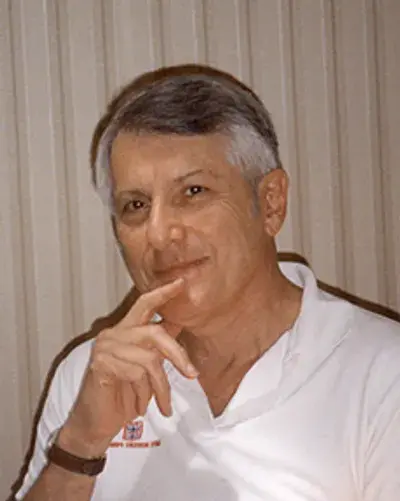
....strange as it seems, language acquisition occurs when language is used for what it was designed for, communication.
___
Professor Krashen
(Some of) The Science Behind XPF
Curious to Know More?
Have you ever wondered:
- Why so many of us fail to remember anything from our high school language lessons?
- Why is it so hard to remember those verb conjugations?
- How come we freeze when the teacher asks us to read out loud?
You don’t need to know the science to benefit from our immersions but if you’re curious to know more; here’s an introduction & suggested authors if you’d like some further reading.
(If you’d like to support our social mission by applying the XPF Approach to your community please ask us about our coaching guide & reading list.)
Apologies
An introduction to Second Language Acquisition
Short Demonstration from Professor Krashen
Full Presentation from Professor Krashen
Full Research Paper from Professor Krashen:
Pioneers of Language Understanding
Stephen Krashen
Stephen Krashen completed his Ph.D. in Linguistics at UCLA (1972), and is currently an Emeritus Professor of Education at the University of Southern California.
Krashen is the author of more than 525 articles and books in the fields of bilingual education, neurolinguistics, second language acquisition and literacy.
He has received numerous awards including the Mildenberger Award (1982), given for his book, Second Language Acquisition and Second Language Learning (Prentice-Hall), the Pimsleur Award, given by the American Council of Foreign Language Teachers for the best published article in 1985, the Dorothy C. McKenzie Award for Distinguished Contribution to the Field of Children’s Literature (Children’s Literature Council of Southern California), a Doctorate of Humane Letters awarded by Lewis and Clark College, Portland (2011), and the “Kenneth S. Goodman In Defense of Good Teaching” Award, College of Education, University of Arizona, 2019).

Steven Pinker
Steven Pinker is an experimental psychologist who conducts research in visual cognition, psycholinguistics, and social relations. He grew up in Montreal and earned his BA from McGill and his PhD from Harvard. Currently Johnstone Professor of Psychology at Harvard, he has also taught at Stanford and MIT.
He has won numerous prizes for his research, his teaching, and his books, including The Language Instinct, How the Mind Works, The Blank Slate, The Better Angels of Our Nature, The Sense of Style, and Enlightenment Now. He is an elected member of the National Academy of Sciences, a two-time Pulitzer Prize finalist, a Humanist of the Year, a recipient of nine honorary doctorates, and one of Foreign Policy’s “World’s Top 100 Public Intellectuals” and Time’s “100 Most Influential People in the World Today.”
He was Chair of the Usage Panel of the American Heritage Dictionary, and writes frequently for the New York Times, the Guardian, and other publications. His twelfth book, published in 2021, is called Rationality: What It Is, Why It Seems Scarce, Why It Matters.

Prof. Victoria Fromkin
Victoria Alexandra Fromkin received her master’s in 1963, her Ph.D in 1965 & taught at UCLA. She studied slips of the tongue, mishearing, and other speech errors, which she applied to phonology, the study of how the sounds of a language are organized in the mind.
From 1971 to 1975, Fromkin was part of a team of linguistic researchers studying the speech of the “feral child” known as Genie. Genie had spent the first 13 years of her life in severe isolation, and Fromkin and her associates hoped that her case would illuminate the process of language acquisition after the critical period.
She published more than one hundred books, monographs, and papers on topics concerned with phonetics, phonology, tone languages, African languages, speech errors, processing models, aphasia, and the brain/mind/language interface – all research areas in which she worked. She co-authored the best selling “An Introduction to Language” – used in many different areas of instruction, including education, languages, psychology, anthropology, English, teaching English as a Second Language (TESL), and linguistics.

Dr James J. Asher
Dr. James J. Asher, a professor of psychology and former associate dean at San Jose State University, has degrees in psychology from the University of New Mexico and the University of Houston with postdoctoral training at the University of Washington (Linguistics), Standford University (Research in Educational Psychology), and the Defense Language Institute West Coast (Arabic).
His research into language acquisition has been funded by grants from the Office of Education, the Office of Naval Research, the Department of Defense, and the State of California. He has written more than a hundred articles which appeared in publications such as Child Development, The Journal of Humanistic Psychology, Psychological Reports, The Journal of Special Education, The Modern Language Journal, The International Review of Applied Linguistics, The Annals of the New York Academy of Sciences, and Psychology Today.
In the past 25 years, Dr. Asher has been invited to demonstrate his stress-free “total physical response” approach at several hundred elementary, high schools and universities, including the University of California, Standford University, the University of Texas, New York University, the University of Hawaii, the University of Alaska, and Cambridge University in England. His classic video demonstrations of TPR with children and adults have been seen by thousands of people around the world.


